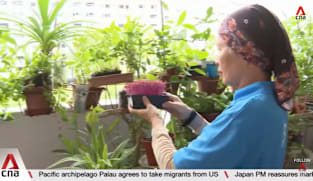Poh Li San on Immigration (Amendment) Bill
Singapore faces an increasing number of visitors juxtaposed against a shrinking workforce. With this in mind, the introduction of the New Clearance Concept (NCC) will improve the speed of immigration clearance and enhance security, said MP Poh Li San in Parliament on Monday (Sep 18). However, she pointed out that if the system is not robust, the knock-on effects could be “massive”, with long queues at checkpoints and travellers potentially missing their flights. Ms Poh asked how failures will be prevented or minimised, whether there will be regular independent audits to check on failure rates and what the contingency plans will be, especially as manning levels will be minimal after the implementation of the NCC. The new system will also entail end-to-end use of biometrics to verify identities and travel details. This will be more convenient but the trade-off could be a higher risk of exposure to data breaches, said Ms Poh. She pointed out that unlike passwords, biometric data such as fingerprints and iris scans cannot be reset. She asked what checks will be done on IT contractors’ systems and staff and what vulnerabilities could arise from the involvement of foreign partners, companies and governments.
Singapore faces an increasing number of visitors juxtaposed against a shrinking workforce. With this in mind, the introduction of the New Clearance Concept (NCC) will improve the speed of immigration clearance and enhance security, said MP Poh Li San in Parliament on Monday (Sep 18). However, she pointed out that if the system is not robust, the knock-on effects could be “massive”, with long queues at checkpoints and travellers potentially missing their flights. Ms Poh asked how failures will be prevented or minimised, whether there will be regular independent audits to check on failure rates and what the contingency plans will be, especially as manning levels will be minimal after the implementation of the NCC. The new system will also entail end-to-end use of biometrics to verify identities and travel details. This will be more convenient but the trade-off could be a higher risk of exposure to data breaches, said Ms Poh. She pointed out that unlike passwords, biometric data such as fingerprints and iris scans cannot be reset. She asked what checks will be done on IT contractors’ systems and staff and what vulnerabilities could arise from the involvement of foreign partners, companies and governments.



















